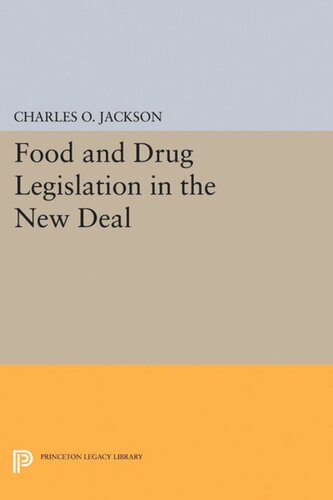

Most ebook files are in PDF format, so you can easily read them using various software such as Foxit Reader or directly on the Google Chrome browser.
Some ebook files are released by publishers in other formats such as .awz, .mobi, .epub, .fb2, etc. You may need to install specific software to read these formats on mobile/PC, such as Calibre.
Please read the tutorial at this link: https://ebookbell.com/faq
We offer FREE conversion to the popular formats you request; however, this may take some time. Therefore, right after payment, please email us, and we will try to provide the service as quickly as possible.
For some exceptional file formats or broken links (if any), please refrain from opening any disputes. Instead, email us first, and we will try to assist within a maximum of 6 hours.
EbookBell Team

4.1
50 reviewsIn June 1938, Franklin D. Roosevelt signed into law a new Food, Drug, and Cosmetic Act, the first major legislation regulating these industries since the 1906 Wiley law. Eliminating many serious and long-standing abuses in production, labeling, and advertising, the 1938 Act was, in the words of David L. Cowen, "a milestone in federal interest in consumer protection." Despite its importance to the American public, however, its passage was effected only after a long, complex battle between conflicting interest groups.
This volume is a study in depth of that five-year struggle, fully documented by records, correspondence, and publications, as well as a social history of the period. The author analyzes the inadequacy of the 1906 law, the roles of Franklin Roosevelt, Henry Wallace, and Rexford Tugwell, the American Medical Association, drug associations, and consumers' and women's groups.
Originally published in 1970.
The Princeton Legacy Library uses the latest print-on-demand technology to again make available previously out-of-print books from the distinguished backlist of Princeton University Press. These editions preserve the original texts of these important books while presenting them in durable paperback and hardcover editions. The goal of the Princeton Legacy Library is to vastly increase access to the rich scholarly heritage found in the thousands of books published by Princeton University Press since its founding in 1905.